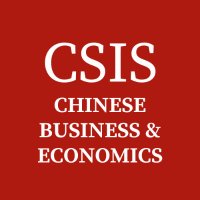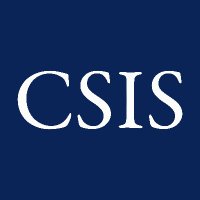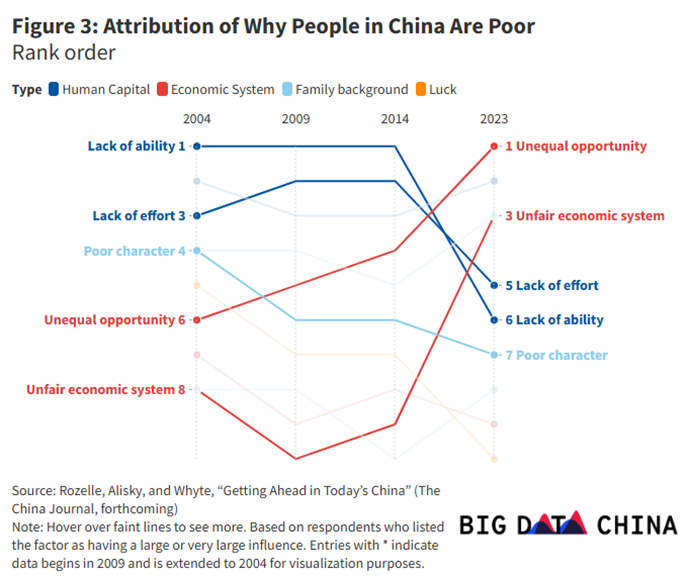
CSIS Chinese Business & Economics
@csiscbe
The Trustee Chair in Chinese Business and Economics provides thought leadership for the policy community about China's economy. Retweet ≠ endorsement
ID: 1184147707448958976
https://www.csis.org/programs/chinese-business-and-economics 15-10-2019 16:44:43
5,5K Tweet
3,3K Takipçi
869 Takip Edilen

Trade war tensions have highlighted the importance of communication between the U.S. and China. Scott Kennedy discusses the value of U.S.-China track-2 dialogues with Chen Dongxiao, the President of the Shanghai Institutes for International Studies (SIIS) in the most recent

Need a quick refresher on Xi Jinping’s recent trip to Southeast Asia? Ilaria Mazzocco breaks down the implications: youtube.com/shorts/GiuXIAH…

"With the U.S. having announced its withdrawal from the Paris Agreement, many observers are hoping the EU and China will take leadership roles at COP30. A negative economic outlook for China may reduce climate ambition further," notes CSIS Chinese Business & Economics. More: cs.is/3Gh3rAp

The U.S. and China have agreed to a 90-day pause on most tariffs they have imposed on each other since last month. What are the key components of the 90-day tariff pause? What can we expect beyond 90 days? We turned to CSIS Chinese Business & Economics expert Scott Kennedy for answers.

The 90-day pause is for now a temporary reprieve from the U.S.-China trade war. To understand the potential pitfalls of a more enduring deal revisit this commentary by Scott Kennedy Read here: csis.org/analysis/unite…

As Congress considers rolling back the incentives for clean energy provided by the IRA, it’s worth understanding the complex tradeoffs inherent in building a domestic industry separate from China. Learn more from this brief by Ilaria Mazzocco: csis.org/analysis/green…

Director of CSIS Chinese Business & Economics, Scott Kennedy, and Philip A. Luck, director of CSIS Economics Program and Scholl Chair, join H. Andrew Schwartz on the Truth of the Matter podcast to discuss the 90-day pause in the trade war between the United States and China and what might come next. tinyurl.com/yk3texvf


"With the U.S. having announced its withdrawal from the Paris Agreement, many observers are hoping the EU and China will take leadership roles at COP30. A negative economic outlook for China may reduce climate ambition further," notes CSIS Chinese Business & Economics. Read more: cs.is/3Gh3rAp

This move is deeply damaging to the US national interest: attracting people to our country’s way of life, receiving help with our economy and innovation, & obtaining detailed info for US to learn about the rest of the world. All this & more could be lost. washingtonpost.com/education/2025…





"The current approach to the automotive sector risks holding back U.S. innovation," warns CSIS Chinese Business & Economics expert Ilaria Mazzocco. Learn more about what's missing from the current U.S. debate on electric vehicles: csis.org/analysis/whats…

As Chinese EVs expand into global markets, Ilaria Mazzocco warns that adopting policies to slow down EVs would made the U.S. industry less competitive and more isolated in the long-term. Her analysis: csis.org/analysis/whats…


The State Department's move to "aggressively revoke visas" for Chinese students threatens scholarly ties when collaboration is most needed. Revisit this episode where Scott Kennedy and Peking University's Yu Tiejun discuss why renewed academic exchange matters:

"The geopolitical environment has changed dramatically, but the STA is not yet obsolete," write CSIS Chinese Business & Economics experts. Read more on the importance of the U.S.-China Science and Technology Cooperation Agreement: csis.org/analysis/us-ch…

With BYD slashing prices last month by as much as 34%, China’s EV price war wages on. To understand the government support that propelled China’s EV industry to new heights while engraining some of its problems, revisit this piece from Scott Kennedy: csis.org/blogs/trustee-…
